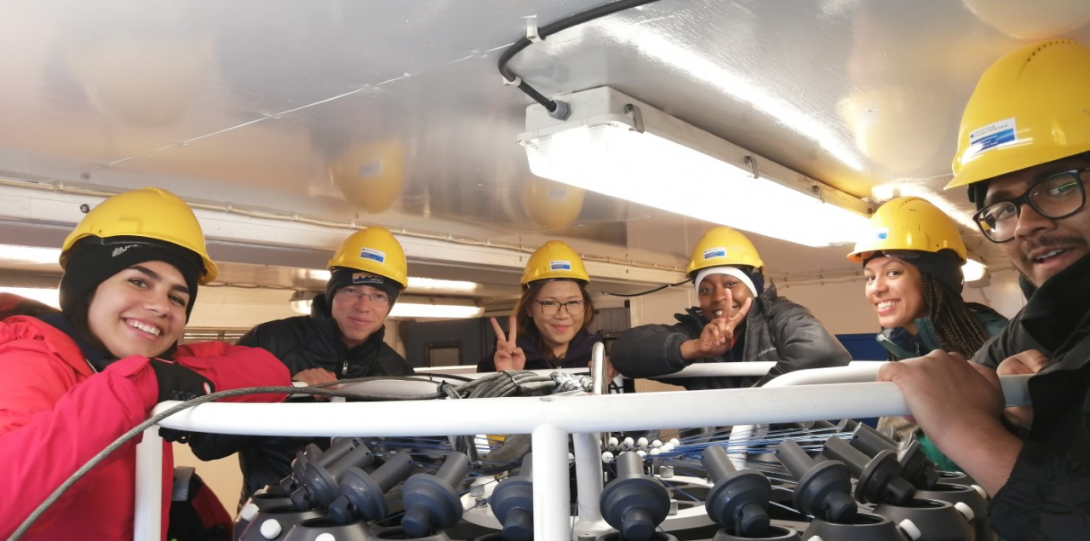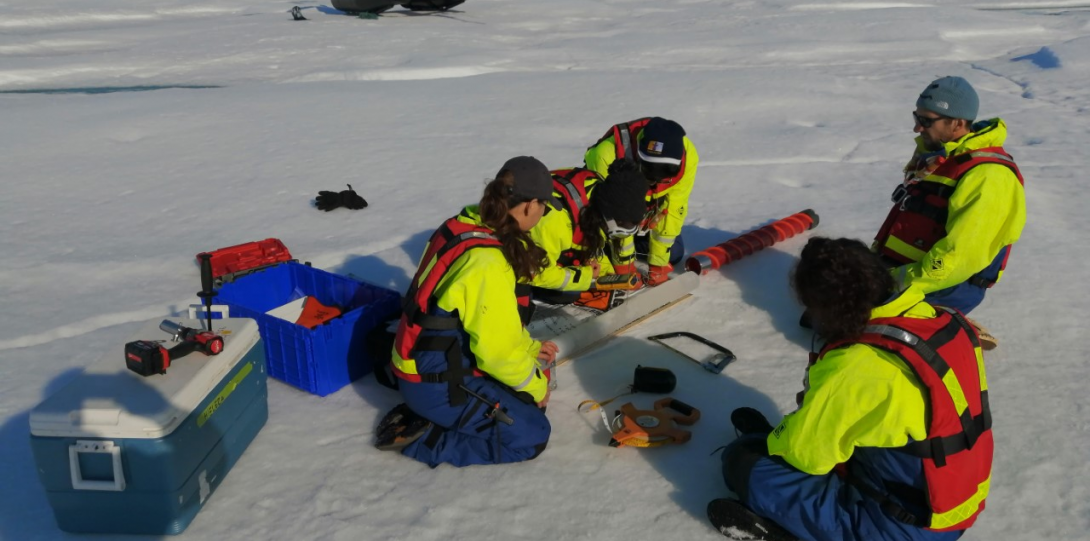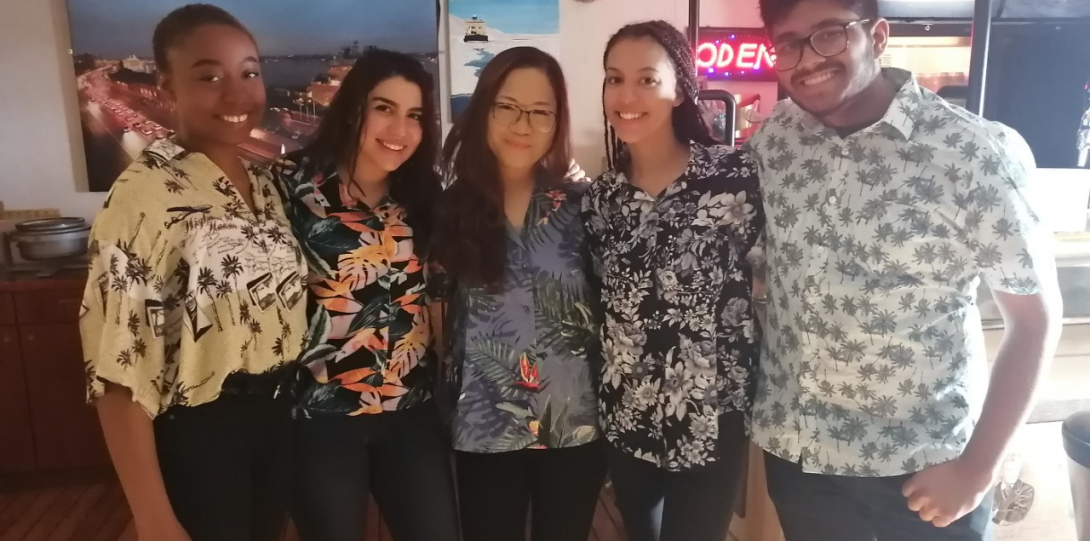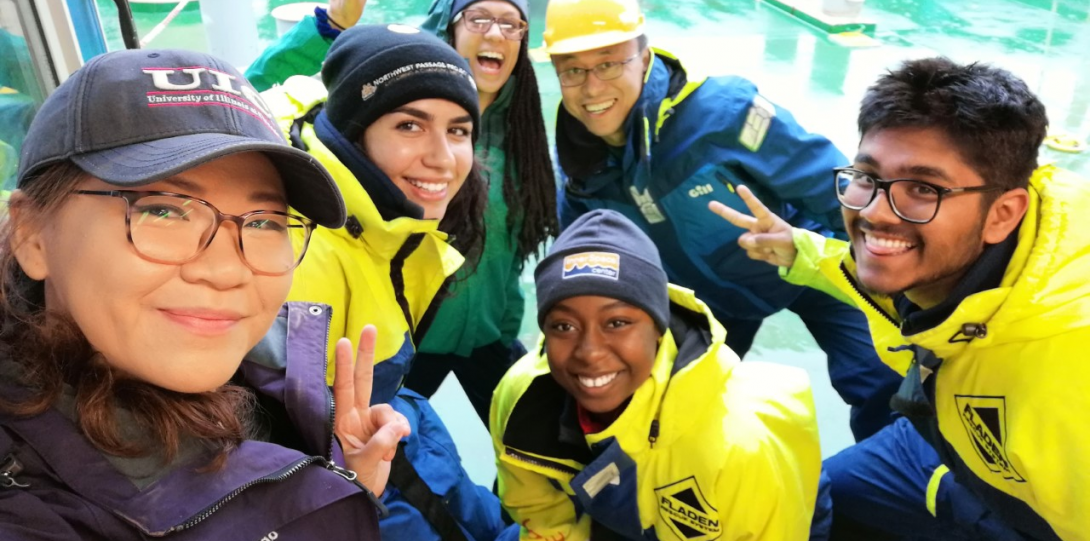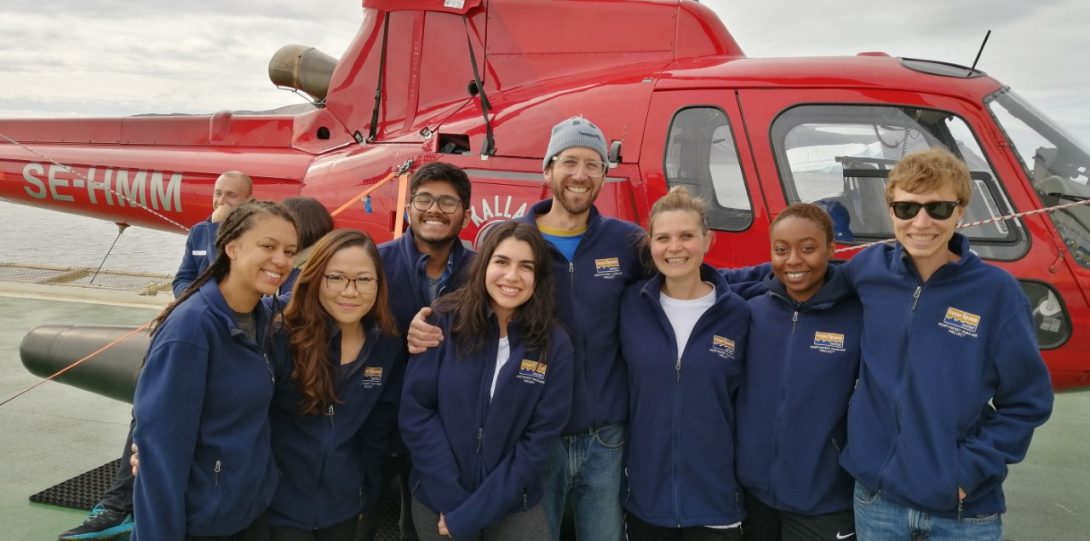Recent highlights from the Northwest Passage Project: UIC students participate to explore and communicate changes in the Arctic
Northwest Passage Project Heading link
The Northwest Passage Project (NPP), a program primarily funded by the National Science Foundation and supported by the Heising-Simons Foundation aims to increase understanding of a changing Arctic through an innovative, interdisciplinary ocean-based research carried out by scientists and student researchers from minority-serving institutions across the United States.
In the expedition last summer, five University of Illinois at Chicago (UIC) students consisting of two graduate students (Cynthia Garcia-Eidell from EaES and Frances Crable from BIOS) and three undergraduate students (Samira Umar from EaES, Theressa Ewa and Humair Raziuddin from BIOS), mentored by Professors Miquel Gonzalez-Meler, Max Berkelhammer, and Andrew King, joined the 18-day research cruise. The participants collected hundreds of water samples to help understand changes in the cryosphere and hydrosphere through stable isotopic analysis, in complement with existing in-situ and remotely sensed datasets. Continuous measurements of greenhouse gases were also taken to provide insights on regional carbon sources and sinks. Sailing within the channels of the Canadian Arctic Archipelago onboard the Research Vessel Icebreaker ODEN, the research crew along with onboard historians, journalists, and local guides also engaged with diverse audiences across the country through real-time at-sea interactions that helped increase awareness about the changes in the region. Apart from biogeochemistry of Arctic waters and atmosphere, research activities also include studying the region’s physical oceanography, at-sea distribution of marine birds and mammals, and microbial population sampling and identification.
Details about UIC’s participation on the NPP project was recently highlighted in this EOS article: https://eos.org/science-updates/once-again-into-the-northwest-passage , while expedition highlights can be seen from this award-winning video: https://stemforall2020.videohall.com/presentations/1899 produced by the University of Rhode Island, Graduate School of Oceanography’s Inner Space Center.
You can also read more about our own Cynthia Garcia-Eidell’s Arctic experience in her blog: https://medium.com/@ceidel2/a-summer-at-the-top-of-the-world-my-journey-to-the-northwest-passage-4159f3448bb1
Photos courtesy: Cynthia Garcia-Eidell
